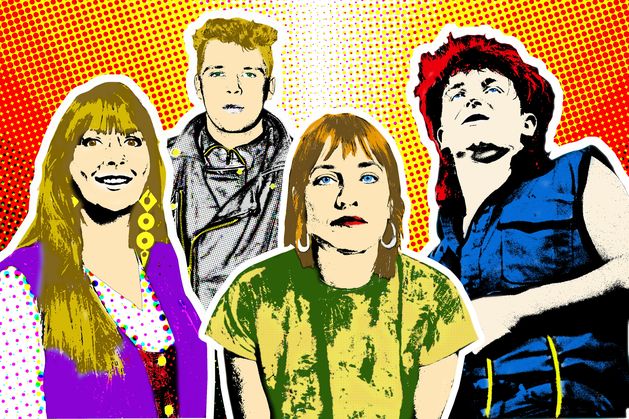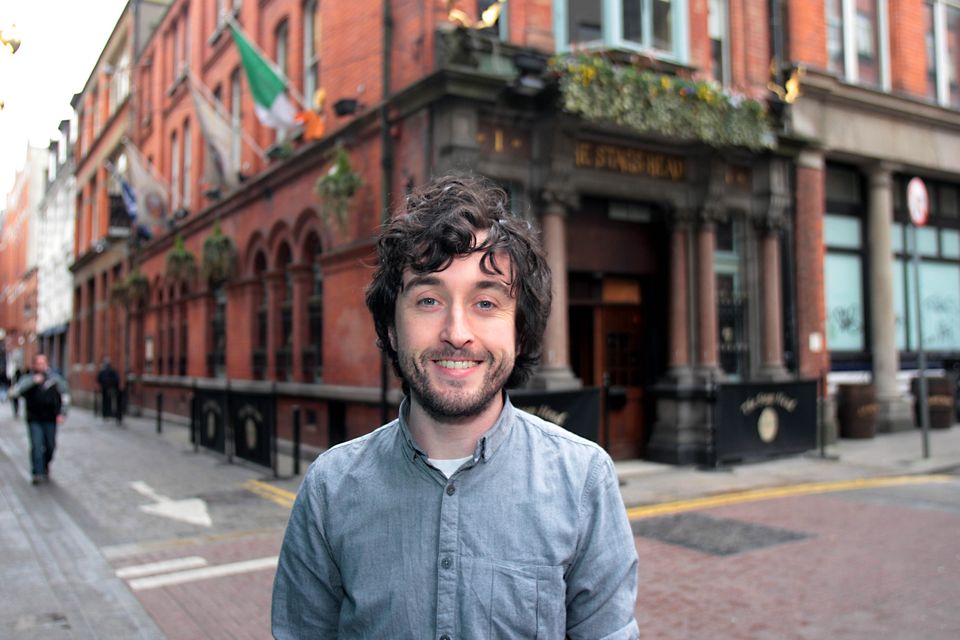Entertainment
The best Irish songs of all time, numbers 30-21: featuring Lankum, Clannad, the Blades and U2

Selecting Ireland’s 50 best songs was no easy task, but this list chosen by the country’s top music experts showcases our songcraft at its finest. Here are numbers 30-21
The feature generated a huge response, partly because the resulting list wasn’t just one person’s opinion. It was a top 50 that took a lot of time to compile, but the results, we think, were worth it.
Many readers had the same response: do the same for Irish songs.
We listened, and here it is.
As with the albums, we have asked 50 people who really know their stuff — musicians, gig promoters, critics, broadcasters, DJs, music PRs, arts podcasters — to come up with their top Irish songs ever in order of preference. A score was then applied — 10 points to the song at number one, down to one point for the song in 10th place — and the results totted up for the final rundown.
There were ground rules, of course. No songs from overseas artists of Irish extraction. Sorry Morrissey, Paul McCartney, Kate Bush… Songs from international bands featuring an Irish musician were permitted. Cover versions were also allowed and the song did not have to have been released as a single.
The top 50 is being published in instalments on Independent.ie this week. The full rundown will feature in next Saturday’s special souvenir edition of the Irish Independent Review — alongside an interview with the writer of the number one song, as well as an alternative top 50, in chronological order, culled from the songs that didn’t quite make the original half-century.
Happy reading — and listening.
30 Clannad & Bono, In a Lifetime (1985)
Written by brothers Pól and Ciarán Brennan, this was the third single to be released from Clannad’s eighth album, Macalla. At the time, U2 were riding high on the success of their Live Aid performance that summer, as were Clannad, who had just won a Bafta for their theme song for Robin of Sherwood.
Recorded over just two nights in Windmill Lane Studios, In a Lifetime is a magical confluence of potent artistry; Moya Brennan’s haunting vocals contrast sublimely with Bono’s impassioned delivery over mesmeric melodies and glorious sax. — RD
29 Thin Lizzy, Whiskey in the Jar (1972)
There are few guitar riffs in rock music as memorable as Eric Bell’s indelible contribution to Whiskey in the Jar.
Thin Lizzy repurposed a 17th century Irish trad ballad, stripping away the jauntiness and adding swagger, anguish and an insouciant poise to the tragic tale of the rapparee who was betrayed by his lover, Molly. Phil Lynott’s yearning vocal is the cherry on top of this iconic rendering of the ballad, staking a strong claim as the definitive version — or, at the very least, the coolest. — LM
28 Lankum, Go Dig My Grave (2023)
Taken from their Choice Prize-winning fourth album False Lankum, Go Dig My Grave is the folk troupe’s chilling and evocative interpretation of the traditional song made popular by Jean Ritchie.
A study on the visceral nature of grief also inspired by the Irish tradition of keening, the song commences with Radie Peat’s powerful lone voice and layers gradually with eerie, augmenting instrumentation. The otherworldly, despairing nature of her vocal instils this tragic story of a young girl’s suicide with a wretched sadness before the song descends into ominous percussion replete with swooning, vertiginous strings. A brooding masterpiece. — RD
The Republic of Ireland football squad make the list with their Italia 90 hit Put ’Em Under Pressure
27 Republic of Ireland football squad, Put ’Em Under Pressure (1990)
It may be a cliché to suggest the country went football mad in the summer of 1990, but it did. In the pre-internet age and when the Celtic Tiger was still several years away, qualifying for our first World Cup was a huge deal.
Built around manager Jack Charlton’s oft-quoted mantra, the song is a rousing, feelgood belter that features some of Irish music’s biggest names. Clannad’s Moya Brennan sings the intro, the guitar riff is from Horslips’ Dearg Doom and the production is from Larry Mullen. It was number one for 13 weeks. — JM
26 U2, The Fly (1991)
After “cutting down the Joshua Tree” (although it was the bloated folly of Rattle and Hum that was the real issue), citizens of the world U2 shacked up in the hallowed halls of Hansa Studios in Berlin just as the wall came tumbling down — and discovered they had a sense of humour.
Featuring a 108 BPM engine room (someone clearly had an ear on the Madchester scene), industrial discord and, best of all, the demented buzz of Edge’s guitar, The Fly trades gravitas for glee. Not to be confused with The Fly (Ssh Song) by Foster and Allen. — AC
25 Jape, Floating (2004)
A mystical haze of droney synthesiser and a sparsely plucked acoustic guitar riff launches into a shuffling, quietly euphoric groove; the opening track on Jape’s second album remains the Dublin band’s defining moment, two decades on.
Richie Egan’s meditation on life and love manages to be both profound and humorous, an ethereal electro-indie comedown packed with quirky melodies and lines like: “We took our first pill when the music was shit / I said ‘f**k dancing all night’, but then that’s just what we did.” A bona fide Irish indie classic. — LM
Jape’s Floating comes in at Number 25
24 Microdisney, Town to Town (1987)
As a songwriter and producer of great renown between the 1960s and 1980s, Mickie Most truly knew what made the perfect song. On hearing this effervescent track penned by Cathal Coughlan and Sean O’Hagan, he declared it at the time to be “one of the greatest pop singles of the past 15 years”.
And what a joyous thing it is, even if it’s not particularly representative of the band’s very fine oeuvre. “She’s trying to pronounce my name,” sings Coughlan, the London-transplanted Corkonian. It should have been a big hit. — JM
23 U2, Bad (1983)
They’re a band renowned for their anthems and big singalong moments, but with Bad, U2 proved that they were more than capable of writing tender, soul-stirring songs too.
A track from fourth album, The Unforgettable Fire (produced by Brian Eno and Daniel Lanois) and inspired by the heroin epidemic of the 1980s, its emotion is slowly eked out over six glorious minutes. Building to a goosebump-inducing crescendo, this is surely one of Bono’s most impassioned vocal deliveries. Their extended performance of the song at Live Aid cemented it as a fan favourite. — LM
22 The Blades, Downmarket (1983)
For a while, at the end of the 1970s, the smart money was on the Blades, rather than their Dublin contemporaries U2, to move into the big time. We all know how that worked out. The Blades’ apparent failure to ‘make it’ wasn’t down to a shortage of great songs. Paul Cleary and friends seemingly wrote them with ease.
Downmarket is nothing short of irresistible with its jangly guitars and sunny brass. It’s not just a great pop-rock song, but a commentary on the unemployment-scarred Ireland of the 1980s. — JM
21 The Cranberries, Zombie (1994)
Given its recent popularity with Irish rugby fans and its eminently anthemic chorus, it can be easy to forget just how political a song Zombie was on release — and still is today. Written by the late Dolores O’Riordan following the IRA’s bombing in Warrington in 1993, the song is an angry condemnation of the violence of the Troubles.
As well as being an astounding rock composition, with its deliciously grungy bassline and siren-like guitar riffs, O’Riordan’s forlorn lyrics remain as relevant as ever. Zombie is a war protest song for the ages. — LM











